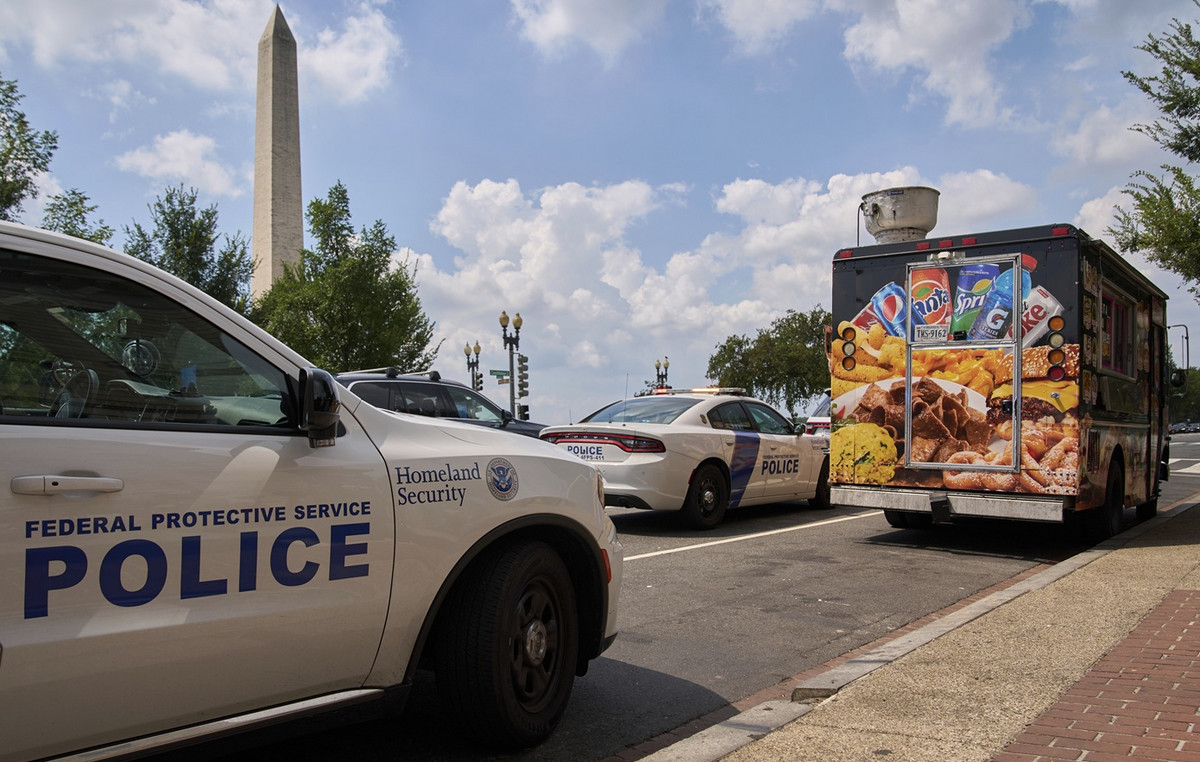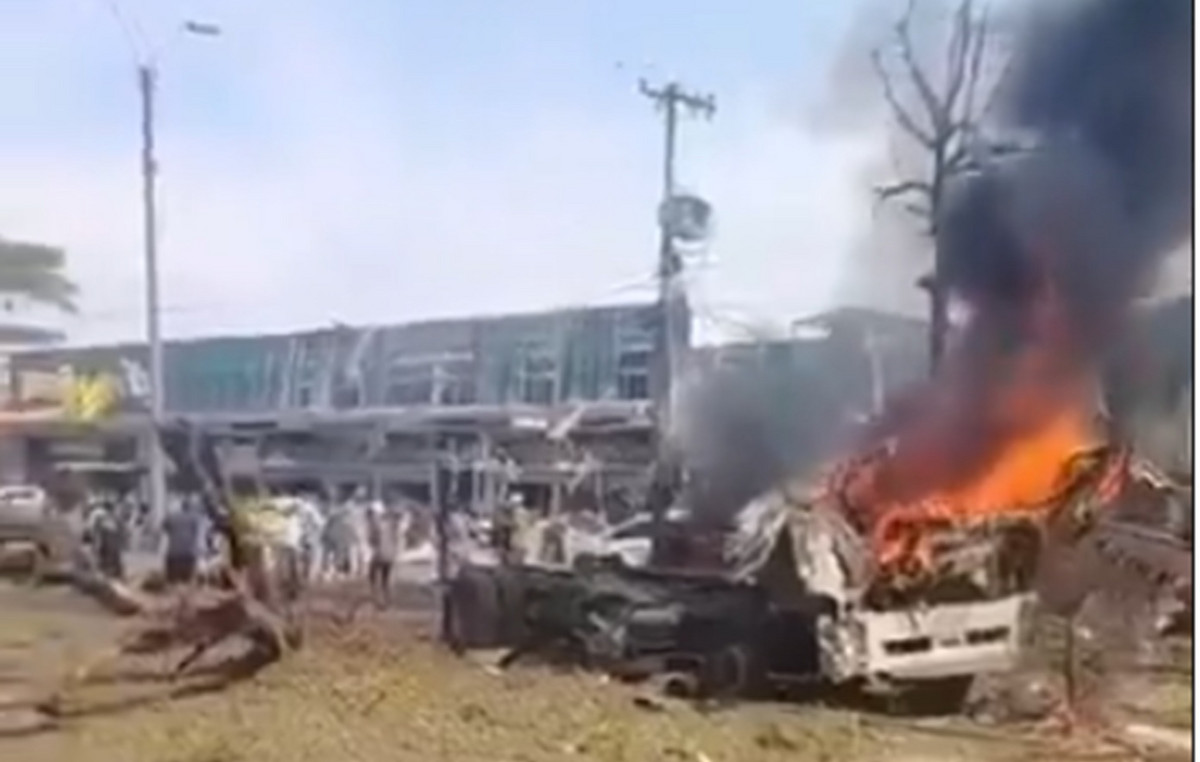This is not the first time that Venezuela appears to be facing a situation with few options after elections.
According to analysts consulted by CNN these scenarios are also harmful in terms of democracy.
Only the last two presidential elections after the death of President Hugo Chávez (the 2013 and 2018 elections) ended in labyrinths similar to the current one: with an official victory, with a questioned electoral system, popular protests that included violence and migratory effects that harmed regional coexistence.
However, there seems to be a consensus among experts on one crucial difference: now the opposition’s victory seems more evident than ever (even in former Chavista strongholds) and also the possibility that there was fraud, given the lack of publication of detailed minutes.
For Benigno Alarcón, director of the Center for Political and Governmental Studies at the Andrés Bello Catholic University of Venezuela, the current circumstances are different because the victory of the opposition is indisputable, both inside and outside the country.
“Never in the past has this been so clear. In 2013 there was a disputed election, but without confirmation of the opposition’s success; in 2018 there was an election that was undoubtedly fraudulent, but the opposition did not even participate. And after that, when Juan Guaidó declared himself president, the fact that he was not an elected candidate weakened him,” he told CNN .
Furthermore, in this election, the opposition united even after the disqualification of its main leader, María Corina Machado, and support for Edmundo González was the majority.
And this unity was maintained even after the National Electoral Council (CNE) announced the results proclaiming Nicolás Maduro the winner. However, the outlook remains open and there is no consensus on what will happen from now on.
What are the possible scenarios?
Analysts consulted by CNN for this article are not optimistic about the options on the table, and past experiences show that the current political impasse situation has favored Maduro.
Among the new developments, many analysts note the resurgence of civil society as an actor on the political map.
“Civil society, which in the past was somewhat dormant, has reappeared on the scene through popular mobilizations,” Juan Negri, director of the Political Science and International Studies course at Torcuato Di Tella University, told CNN in Buenos Aires.

An unlikely new election
Almost two weeks after the elections, calling new elections is the least likely option in Venezuela, according to the experts consulted.
“I don’t think it’s the most likely scenario because it depends on several factors, but it would consist of, in the face of internal and external pressures – and by internal I also mean the mild ones within Chavismo – Maduro accepting the holding of new elections with some argument “an elegant solution to technical or bureaucratic problems,” considered Negri.
Maduro’s hardening rhetoric in recent days, however, makes that seem unlikely, the academic added.
Possible split in the Armed Forces and the “Brazil factor”
According to Negri, in Venezuela there could be a scenario comparable to what happened in Eastern Europe between the late 1980s and early 1990s.
“Massive mobilizations could cause an earthquake that causes fissures in the Armed Forces, until at some point the generals tell Maduro that they can no longer guarantee his security, so he decides to leave the country,” he explained to CNN .
In this scenario, he added, the “Brazil factor” would be crucial.
“Brazil could act as a negotiator to guarantee the safety of his assets and his family. The international community would be responsible for building a golden bridge for Maduro and guaranteeing his exile. In the best case scenario, a transition to a democratic regime,” he said.

For Negri, international pressure can operate in Venezuela, “but not in a vacuum, because the government’s position after 2019 is even firmer and as time goes by it continues to strengthen.”
Jennifer Cyr, research professor of Political Science and director of the Postgraduate Program in Political Science at Torcuato Di Tella University, believes that the negotiated and mediated solution by Brazil is the only peaceful solution to the crisis.
“It must be a negotiation between the regime and the opposition that includes the Armed Forces,” he indicated.
Cyr added that for this scenario to work, Maduro’s government must obtain concessions: “We learned from transitions like Chile’s between 1988 and 1989 that guarantees must be given as a way to resolve the impasse and recover democracy.”
There are two factors, however, that seem to indicate that this is not the current direction of the situation.
The first is that the Maduro government shows no signs of reassessing the situation.
“There is no evidence that the door to negotiation is open. On the contrary, the government is playing very hardball and has taken the repressive path,” Negri said.
The second factor has to do with the Armed Forces, which have shown no signs of splitting and which on several occasions, since the beginning of the current crisis, have ratified their support for Maduro.
González Urrutia, “responsible president”?
As happened in 2019, when Guaidó declared himself president of Venezuela and was recognized by more than 50 countries, some question whether this could be a way to put pressure on the government through González Urrutia.

“I think what happened then was that the opposition made a lot of mistakes, including lasting longer than necessary. But that scenario has changed: now we are facing a much more unified opposition under the leadership of María Corina Machado, who managed that position through internal primaries. In 2019, the opposition was still very divided between the street strategy or the institutionalist path, and I don’t think Maduro saw Guaidó as a threat like the one María Corina Machado represented,” Cyr said.
Although he agrees that the context has changed, Negri said that Maduro has everything he needs to win.
“By repeating its attitude in 2019, the government already has an advantage. I mean: let time pass, not give in and hold on. Some countries could play the hard card, for example the US could apply a few more sanctions, but I don’t think it’s a strategy that will work,” he said.
The international context gives Maduro an advantage
Maduro came into the July 28 elections with some important issues in his favor.
Among them, some economic agreements with the United States to open the electoral route – although not without turbulence –, in addition to its firm alliance with countries such as Russia, China and Iran.
But there is one more factor that Cyr focuses on.

“We cannot forget that the international context is one of democratic regression. Democratic discourses are not exactly those that are on the rise, and citizens have less confidence in what democratic regimes can offer,” he said.
For her, this represents an advantage for a regime that cannot – and may no longer care – to defend itself as a democracy.
“In a context where democracy is not such a strong value, Maduro can bet on continuing to improve the economy – which is not so difficult because it was destroyed 10 years ago – on achieving a certain idea of security – even through repression – and remaining in power,” he added.
For this reason, and despite the emerging prominence of civil society, both the historical and the context seem to favor, at least circumstantially, the Maduro government.
Source: CNN Brasil
Bruce Belcher is a seasoned author with over 5 years of experience in world news. He writes for online news websites and provides in-depth analysis on the world stock market. Bruce is known for his insightful perspectives and commitment to keeping the public informed.







